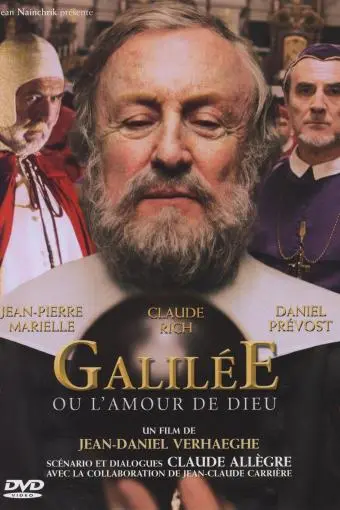Write an article
Create a list
Publish a column
Upload a video

Log in
My channel
Settings
Invite friends
English


Galilée ou L'amour de Dieu (Original)
The Dialogues, Galileo's masterpiece, were published in 1632 with the approval of Catholic censors. It was applauded by intellectuals but nevertheless aroused the Church's ire. Despite his continued insistence that his work in the area was purely theoretical, despite his strict following of the church protocol for publication of works (which required prior examination by church censors and subsequent permission), and despite his close friendship with the Pope (who presided throughout the ordeal), Galileo was summoned to trial before the Roman Inquisition in 1633. During this interrogation Galileo stated that he did not defend the Copernican theory. A scientific and theologic fight began between Galileo and his three prosecutors. Galileo had the bigest difficulties to hide he deeply considered the Copernic model could be the good one. The church, leaded by dogma, went on arguing about his convictions. The trial lasted several monthes. The Inquisition held the final hearing on Galileo, who was then 69 years old and pleaded for mercy, pointing to his "regrettable state of physical unwellness". Threatening him with torture, imprisonment, and death on the stake, the show trial forced Galileo to "abjure, curse and detest" his work and to promise to denounce others who held his prior viewpoint. Galileo was sentenced to prison, but because of his advanced age and Church politics the sentence was commuted to house arrest at his villas in Arcetri and Florence. Leaving the trial, Galileo, old and exhausted, whispered the famous sentence: "Eppur si muove" (But it does move!).
Info mistake?